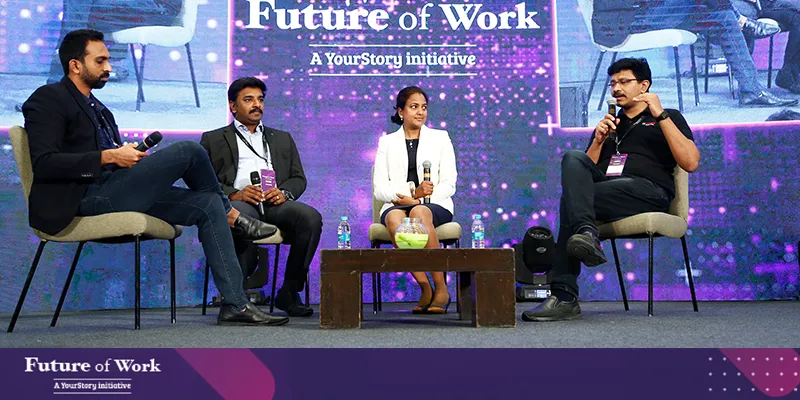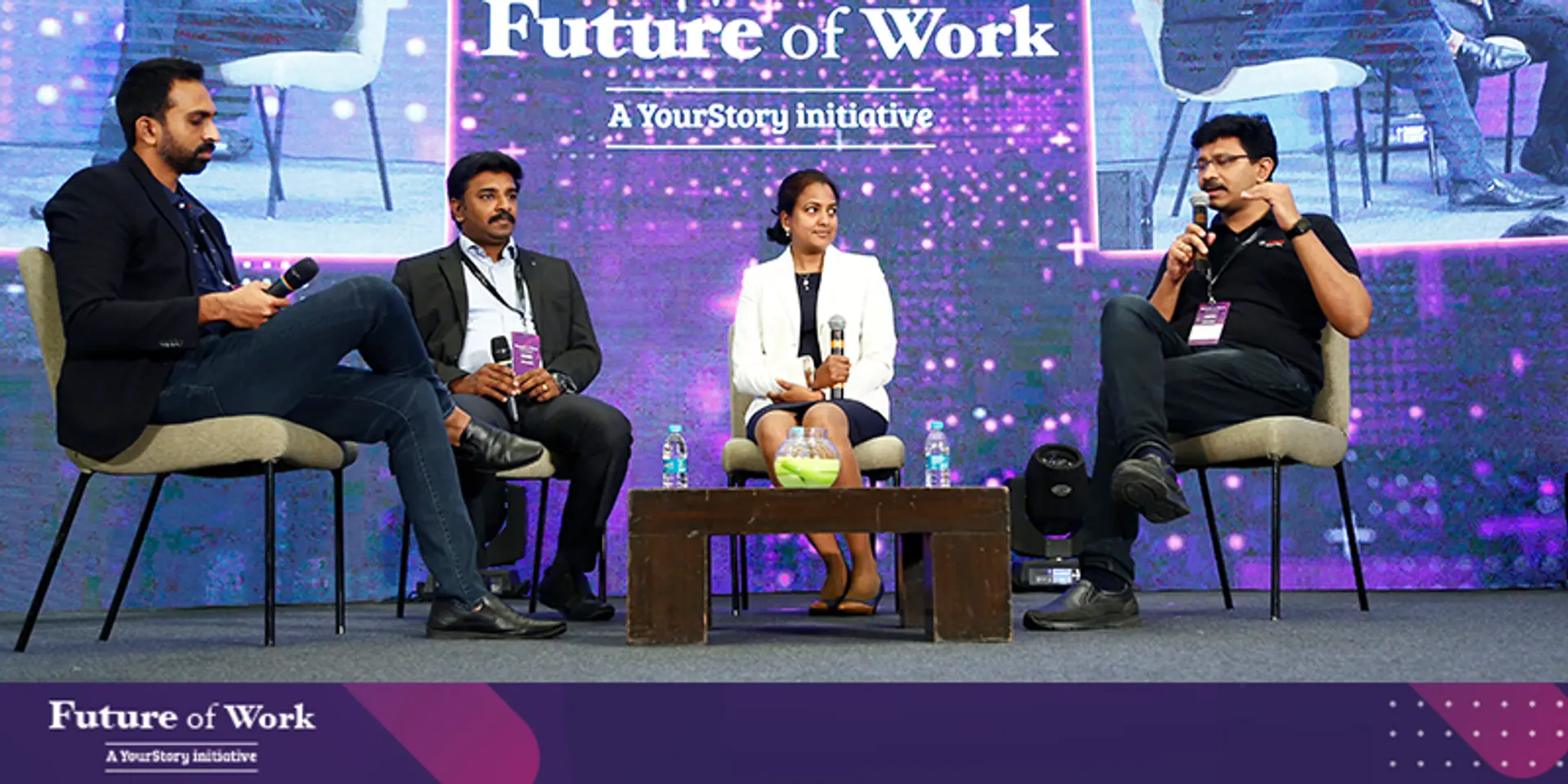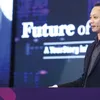Future of Work: As AI transforms lives, it must stay ethical, says panel
Speaking at YourStory's Future of Work 2020, leaders from Bosch-IERO, Rolls Royce and Accenture stressed on strengthening the ethics around AI.
Artificial Intelligence or AI is set to become a $2.9 trillion dollar industry by 2025, according to global research and advisory firm Gartner. Within the tech industry and the startup ecosystem, the term AI has become so common, that it is almost used ad nauseam. Yet, there is still a certain glamour and intrigue associated with the term.
Beyond the cool quotient, how ‘real’ is AI, though? How impactful, exactly? A panel consisting of leaders from Bosch-IERO, Rolls Royce and Accenture sat down to discuss this, at the third edition of YourStory's Future of Work, India's largest product-design-tech conference, on Friday.

Future of Work 2020 AI panel
Rolls-Royce Head of Partnerships and Ecosystem (APAC), Rajashree Rao said, “AI is real. But is AI inclusive and free of bias? Engineers today have to figure that out and start with a hypothesis before claiming that AI is really transforming industries. However, AI is already there in the healthcare and the automobile industries.”
The impact of AI, across industries, can actually be quite significant. According to Accenture research, AI has the potential to boost rates of profitability by an average of 38 percent and lead to an economic boost of $14 trillion across 16 industries in 12 economies by 2035.
Accenture Global Lead and VP, Philip Varughese said, “If engineers build AI they should look at the hypothesis, the data it uses and the high level of accuracy that it can generate. You have to remember today, that AI can be biased if you don't audit the algorithm.”
He urged that engineers must ask themselves constantly, whether the AI they are building is always making the right decision.
Even as technology strengthens its grip on everything, the human aspect remains critical, he pointed out. “Today we are using AI in courts, in cars and to an extent they are used in toothbrushes. However, the majority of the world is using machine learning and that is the path towards AI. The term AI works when there are large streams of data.
"Engineers must plan to use analytics first, rule-based algorithms, machine learning and then let self-learning AI make recommendations. Here, the human (intervention) is very important because in the end, the AI should help humans augment their lives."
AI works when the State, corporate and citizen consortiums create policies together, to have a platform that is ethical, inclusive, regulated, secure, transparent, responsible and auditable, the panel echoed.
One of the first countries to bring in data ethics and have a commission around AI is Germany. According to the Data Ethics Commission in Germany, "the use of algorithms and artificial intelligence, as well as the handling of data, holds enormous potential. But at the same time, it raises numerous ethical and legal questions.
The task of the Federal Government’s Data Ethics Commission (Datenethikkommission) will be to build on scientific and technical expertise in developing ethical guidelines for the protection of the individual, the preservation of social cohesion, and the safeguarding and promotion of prosperity in the information age."
At the panel, Bosch Engineering and Business Solutions’ Head of AI-Aero, Hemanth Sheelvant, urged startups to delve deep into the ethical and auditable issues around AI. "You have to ask the questions- ‘Do you need AI at all? What will you use it for?’ You have to plan it based on your objectives to reduce costs, improve performance, remove mundane tasks and overheads. When you combine this with verification mechanisms like Blockchain you have a very powerful solution to help citizens and corporations achieve efficiency.”
Despite all the questions raised around the use of AI, all the panelists agreed that its importance and impact in today’s times cannot be ignored and that every stakeholder should embrace it responsibly.
(Edited by Ramarko Sengupta)
A big shout out to our Future of Work 2020 Sponsors: Alibaba Cloud, Larksuite, Vodafone Idea Limited, Gojek, Adobe, Udaan, Pocket Aces, Junglee Games, ShareChat, Open, Vesta Space Technology, Maharashtra State Innovation Society, Kristal.AI and GetToWork; and our Knowledge Partner: Ascend Harvard Business Review.






